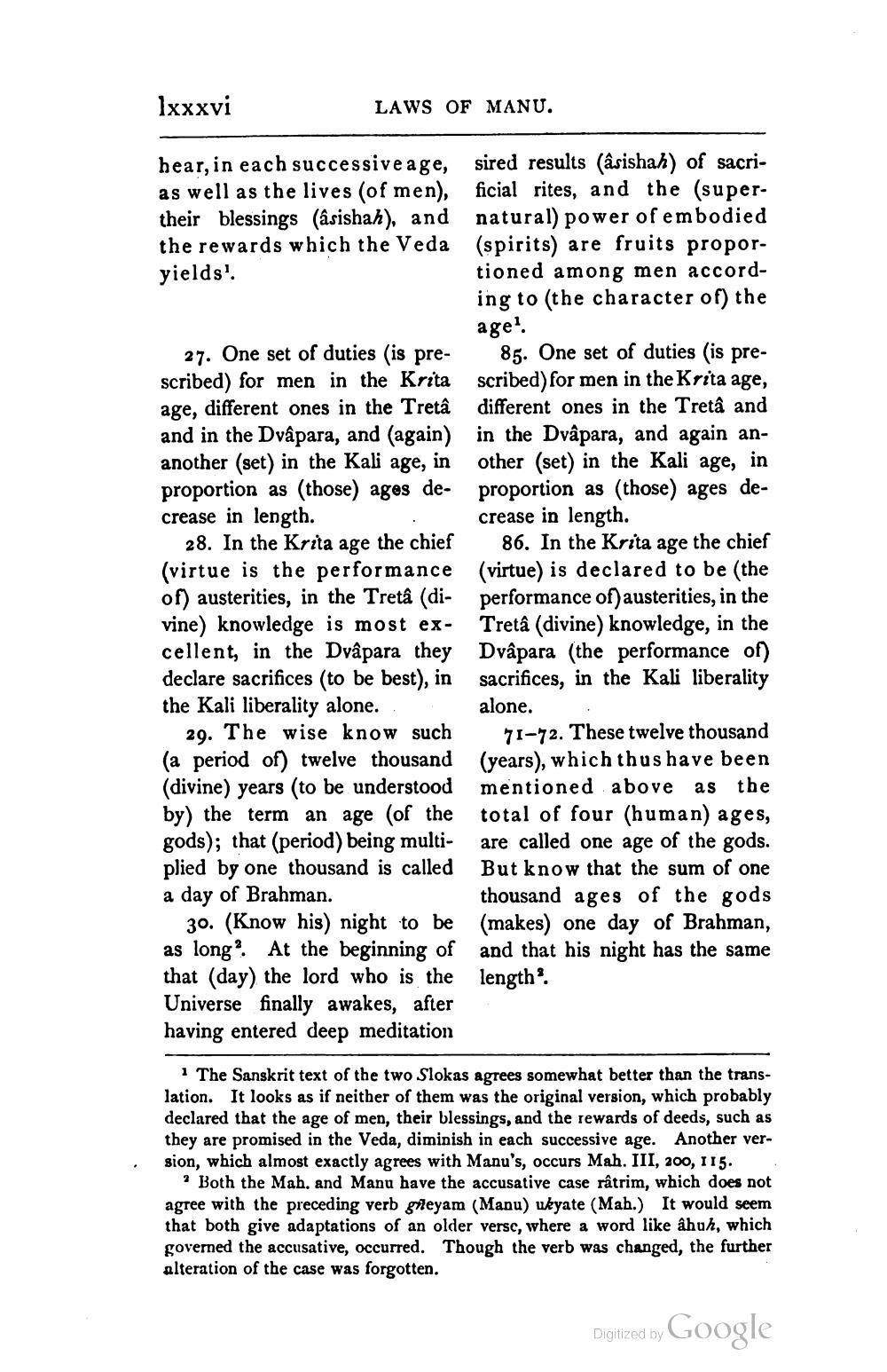________________
Ixxxvi
LAWS OF MANU.
hear, in each successive age, sired results (âsishah) of sacrias well as the lives (of men), ficial rites, and the (supertheir blessings (asishah), and natural) power of embodied the rewards which the Veda (spirits) are fruits proporyields'.
tioned among men according to (the character of) the
age?
27. One set of duties (is pre- 85. One set of duties (is prescribed) for men in the Krita scribed) for men in the Krita age, age, different ones in the Tretâ different ones in the Tretâ and and in the Dvâpara, and (again) in the Dvâpara, and again ananother (set) in the Kali age, in other (set) in the Kali age, in proportion as (those) ages de- proportion as (those) ages decrease in length.
crease in length. 28. In the Krita age the chief 86. In the Krita age the chief (virtue is the performance (virtue) is declared to be the of) austerities, in the Tretâ (di- performance of)austerities, in the vine) knowledge is most ex- Tretâ (divine) knowledge, in the cellent, in the Dvâpara they Dvâpara (the performance of) declare sacrifices (to be best), in sacrifices, in the Kali liberality the Kali liberality alone. alone.
29. The wise know such 71-72. These twelve thousand (a period of) twelve thousand (years), which thus have been (divine) years to be understood mentioned above as the by) the term an age of the total of four (human) ages, gods); that (period) being multi- are called one age of the gods. plied by one thousand is called But know that the sum of one a day of Brahman.
thousand ages of the gods 30. (Know his) night to be (makes) one day of Brahman, as long? At the beginning of and that his night has the same that (day) the lord who is the length?. Universe finally awakes, after having entered deep meditation
1 The Sanskrit text of the two Slokas agrees somewhat better than the translation. It looks as if neither of them was the original version, which probably declared that the age of men, their blessings, and the rewards of deeds, such as they are promised in the Veda, diminish in each successive age. Another version, which almost exactly agrees with Manu's, occurs Mah. III, 200, 115.
? Both the Mah. and Many have the accusative case râtrim, which does not agree with the preceding verb greyam (Manu) ukyate (Mah.) It would seem that both give adaptations of an older verse, where a word like âhuh, which governed the accusative, occurred. Though the verb was changed, the further alteration of the case was forgotten.
Digitized by Google




